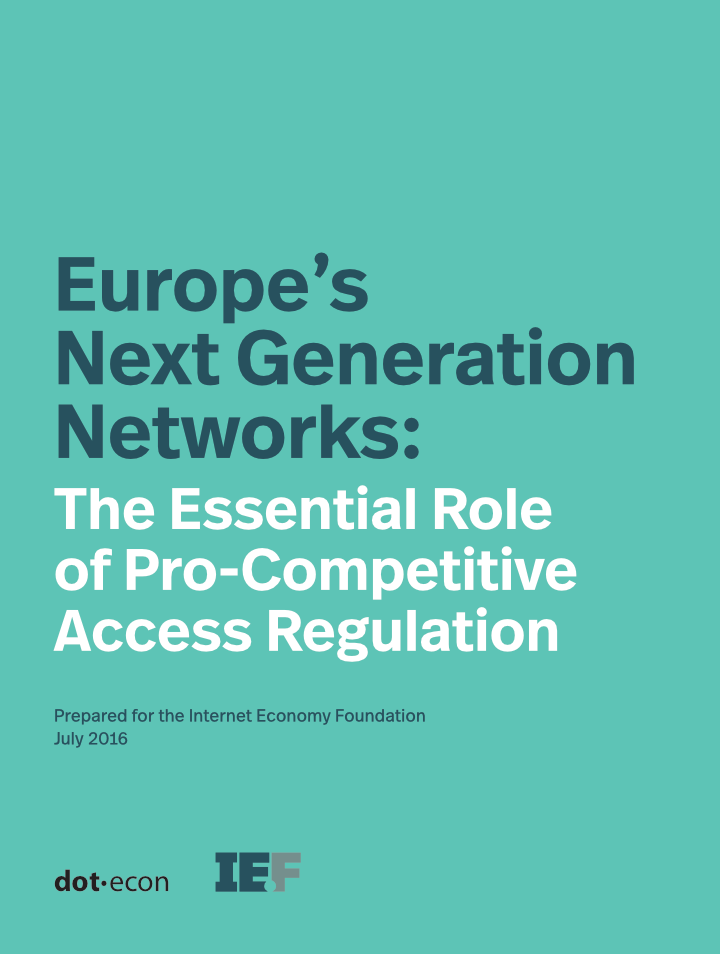Internet Economy Foundation calls for EU legislation to safeguard competition in Telecommunications.
In order to compete at the forefront of the global digital economy and meet its goals of broadband access for its citizens, Europe needs to prioritise the availability and roll out of ultra-fast broadband infrastructure. In a collaborative new study, the Internet Economy Foundation (IE.F) and the economic consultancy DotEcon examine the benefits that two decades of regulatory obligations on incumbent telecommunications operators have brought to Europe. They warn that removing this competitive framework within the forthcoming review of the current EU telecoms rules endangers the progress that has been made and would lead to less choice, lower service quality and higher prices for consumers.
The USA serve as a prime example of deregulation’s downside – the study shows – as consumers pay much higher prices and often have only a very limited choice of providers due to a lack of competition. Whereas the EU average monthly cost for 30-100 Mbps is EUR 45, Americans pay an average of EUR 94. Likewise, for highest speed service (>100 Mbps), American broadband consumers pay EUR 148, more than double the EU average of EUR 66. As a result, broadband services in the USA are the fourth most expensive among OECD nations.
These differences, the study demonstrates, are not accidental, but a consequence of the contrasting regulatory frameworks, especially in the wake of the US loosening its pro-competitive regulation in 2002. Investment in the US into both broadband provision and wireline networks was significantly higher in the period in which extensive access obligations applied than in the period after deregulation.
Further, the study demonstrates that more competition, not deregulation, is a key driver of investment into high-speed broadband. Likewise, where there is less competition, meaning a market is concentrated among fewer players, high-speed coverage is lower.
The German market shows in particular that competition drives investments. More than the half of investments into broadband infrastructure and more than 75% into fibre optics infrastructure are due to alternative providers.
Not only is there no evidence that access regulation in the EU has hindered investment, but current arguments for rolling it back are shown to be limited and speculative. Moreover, the likely downsides of reducing access regulation – such as higher prices for consumers - are substantial.
Though the future regulatory framework must provide access seekers and access providers with flexibility to agree on mutually beneficial agreements and risk-sharing models, there has to be a regulatory back-stop in Europe to ensure that such negotiation and agreements are carried out at eye level.
Clark Parsons, Managing Director of the IE.F underlines: “The liberalisation of telecoms markets and the introduction of access regulation has contributed to Europe’s welfare and competitiveness, by fostering vibrant competition leading to lower prices, innovation, more choice and better service quality. We therefore urge the European Commission to continue on this path of competition-based investments into Europe’s Next Generation Gigabit Infrastructure.”
The complete study can be downloaded here:
